How to get a great guitar sound... without buying a guitar
Ain't nothing like the real thing... is there? We take a look at some of the most realistic software guitar emulators
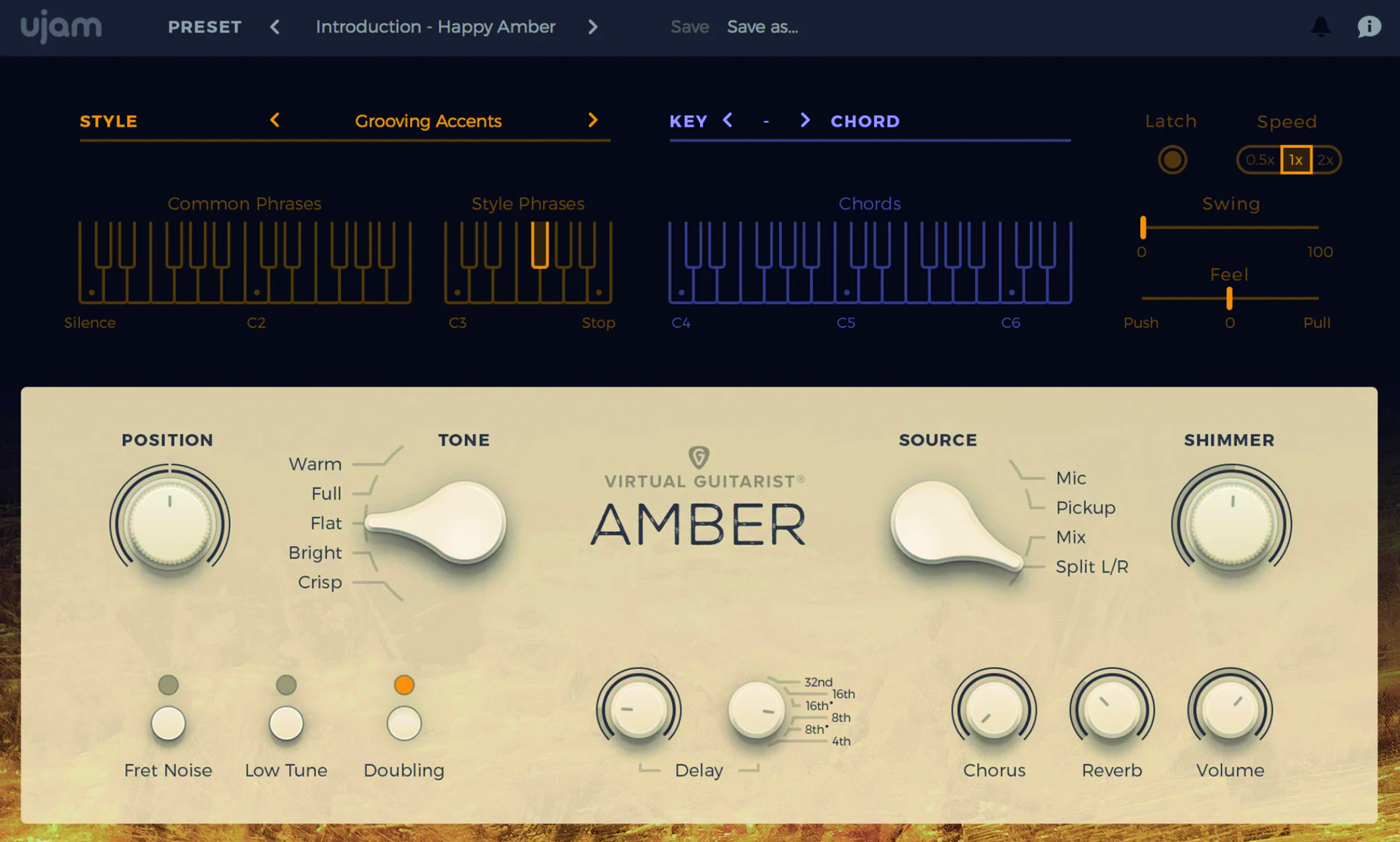
This one's for those who don’t have access to (or the ability to play) a real guitar, but still want those sparkling textures. The solution: software sample libraries and virtual players. Some even boldly argue that software guitar is a more practical route to rich, majestic guitar melodies…
It’s now a nearly universally recognised fact that the pro-level sample library has largely negated the necessity of investing in bank-breaking instruments, or studio recording time. From the comfort of your home, music makers across genres can easily conjure lush orchestration, realistic-sounding drum-kits and authentic analogue synth tones with the right applications of professionally curated sample collections, in conjunction with natural-sounding legatos and humanisation abilities.
For some however, guitar sampling remains something to be treated with a degree of scepticism, as those stubborn real-world players remain dubious of the idea that software can reproduce guitar parts as realistic as those performed by a human being when performed via a MIDI keyboard, or programmed via software.
Well, that idea should be put to bed right now, because, in reality, guitar sampling has been a perfectly elegant solution for those less able to weave dazzling solos with their fingers for years, or for those looking to apply guitar characteristics that are simply outside of their sphere to muster.
The idea that these virtual guitar suites can’t sound truly realistic may have held water some ten years ago, but the last decade has seen rapid innovations in performability and sample animation. Many guitar sample libraries feature phrases and scale runs performed by superlative players, recorded in a studio context with top of the line amps, cabs and microphones too. When applied to a track, very few listeners – if any – would be able to tell that they were added using software.
Warts and all
While it’s definitely the case that you now don’t actually need a real guitar in order to work the instrument in your mix, you really do need to make sure that you listen carefully to the sound of the legion of virtual guitar VSTs for sale before you part with your cash.
You’ll find that, as a general rule, they’ve all been tailored for a specific sonic purpose. Impact Soundworks’ Shreddage for example, is aimed at those wanting a pounding metal thrash, while the affecting, delayed licks found in Audiomodern’s Opacity II heavily vie to be used in a Nordic murder mystery soundtrack. While both are technically guitar packs, they cater for very different audiences.
Want all the hottest music and gear news, reviews, deals, features and more, direct to your inbox? Sign up here.
Sound aside, many of these types of virtual guitar plugin will contain pre-played phrases, riffs and licks that are triggered like any other sample, but if you were wanting to create your own, note-by-note, you’d be advised to take a look at the individual expressive capabilities of the suite. The aforementioned Opacity II is exemplary in this regard, with its pre-prepared (and pre-mixed) textured pads able to be scaled seamlessly, while the sequence loops, swells and pads can yield stunning guitar atmospheres it would take days to carve.
The same can be said of the much more straightforward Session Guitar series from Native Instruments. While these suites contain some stellar recordings of classic guitars (for example a Martin D-35, in the case of the standout Strummed Acoustic), the best aspect of the software is that ability to trigger predetermined chord sequences via a pattern selector, or, to boil things down to a crazily simple level, via a one-note key press, which triggers a lush chord on the chosen guitar. It’s actually almost that bit too easy, but at the end of the day, it sounds real, and accelerates the production process.
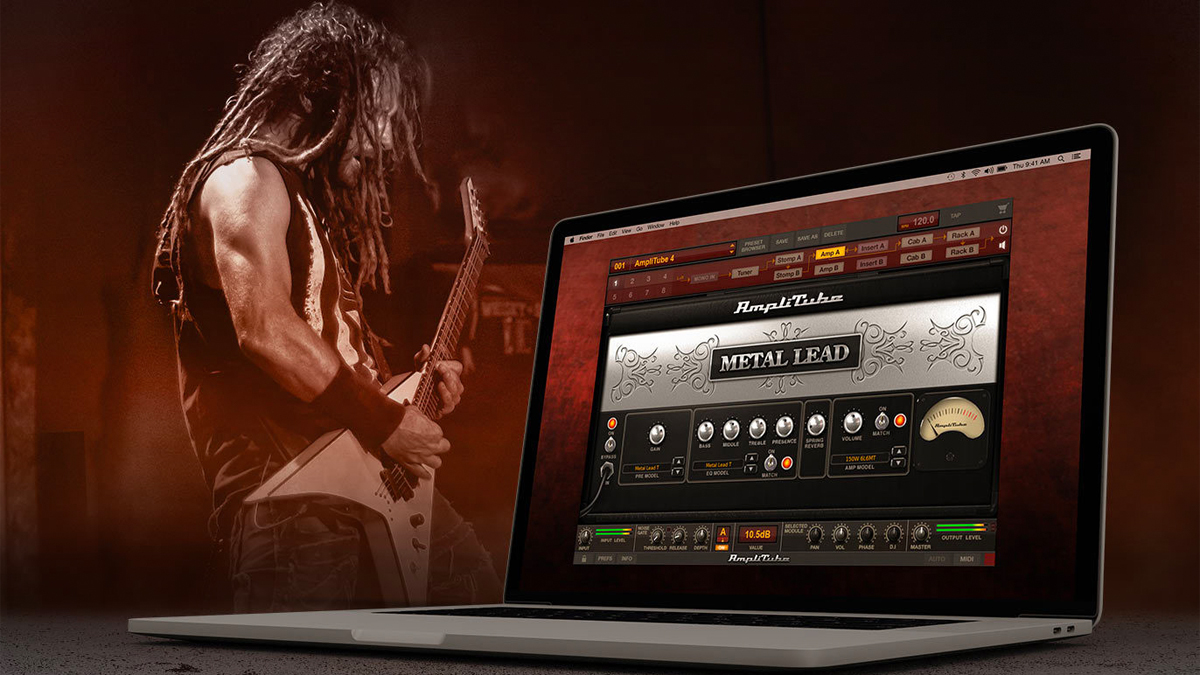
While direct overall control over chords and notes is one aspect of being a guitarist, the parallel pleasure of exploring the expressive scope of the instrument, and coming up with new, off-the-wall riffs and melodies is something that many might expect the software world to not be able to cater for.
Well, Impromptu Guitars from Zero-G features an engine that randomly weaves together a wide range of improvised loops, crossfade-able by use of the central knob. These evolving sounds can be mixed into your track in numerous pleasing ways, and were all captured with real amps and pedals.
Other software, such as the range offered by Real Guitar, allows a wide range of techniques and chordal control, with key velocity and your mod wheel affecting such aspects as harmonics, strum intensity and chord voicing. Real Guitar’s suites – among many others – also contain humanisation algorithms, designed to combat the former jarring realisation that we’re working in the domain of samples, with chord strums and technique being carefully thought about during the recording process.
Oddly, human imperfection and unpredictability is a discernible, sought-after attribute. While we’ve named a few of our particular favourite guitar sample manipulating products, do take the time to explore around and hone in on the right fit for your music. Or, if you’re starting fresh, a guitar sample library with performance abilities can be a splendid starting point.
The fight for humanity
Even if you’re a guitarist through-and-through, it’s certainly not an either/or situation with regards to the virtual world. Certain software suites could lead you down more interesting creative angles.
Melodic sample packs, such as Pedal Steel from Loopmasters, or Guitar Hooks from IQ Samples can be easily slotted in to your mix, and can spur on the creation of new earworms, which you can develop further with an actual instrument (though you may want to keep these royalty-free sounds as they are, bearing in mind they’ve been captured with god-tier guitars and amp combinations).
However you want to approach things, the golden rule is that all music-making technology is there to help your creativity to flourish, and tired arguments about hardware vs software or indeed guitars vs sampled guitars restrict both sides of the fence.
But, there are no shortcuts to achieving the perfect sound for your track – as we’ve over-stated throughout this feature, the track should always be the primary consideration.
Even if you’ve spent your life in dance music, and never worked with the guitar as a mix element before, then why not open your ears to the possibilities it presents? You might be surprised with how a considered application of guitar sounds can prove to be the missing ingredient that makes your track into a real gourmet dish.
6 of the best guitar emulators
Impact Soundworks Shreddage 3 Hydra | £110
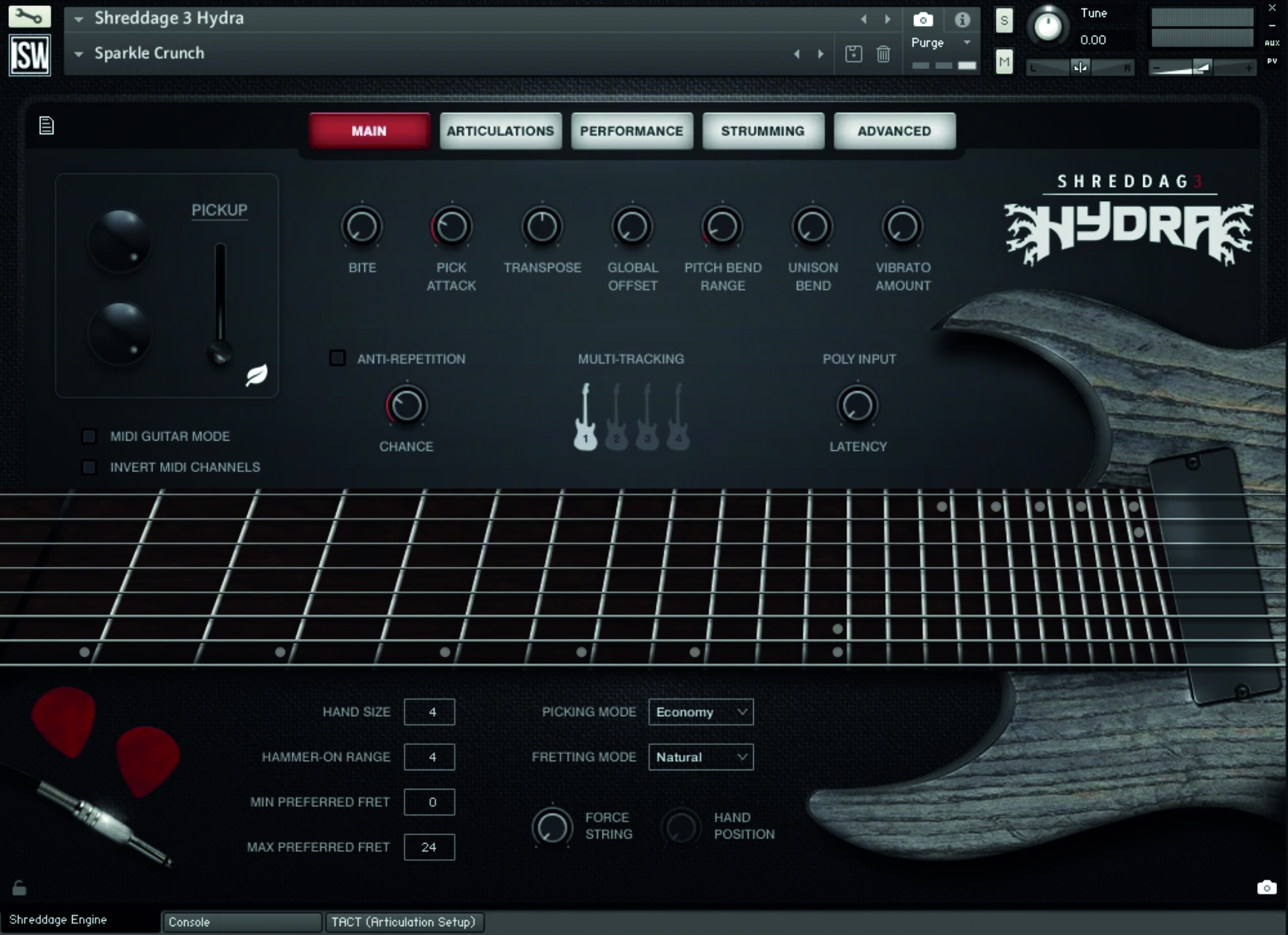
If you want some beefy metal power in your mix, but don’t own either a guitar or the necessary skill to conjure the required tone, then Shreddage 3 is tailor-made for you. Using a MIDI keyboard, Shreddage allows you to control the guitar via Poly Input, while the suite also contains huge numbers of articulations and presets.
Amplesound Ample Guitar L III | £120
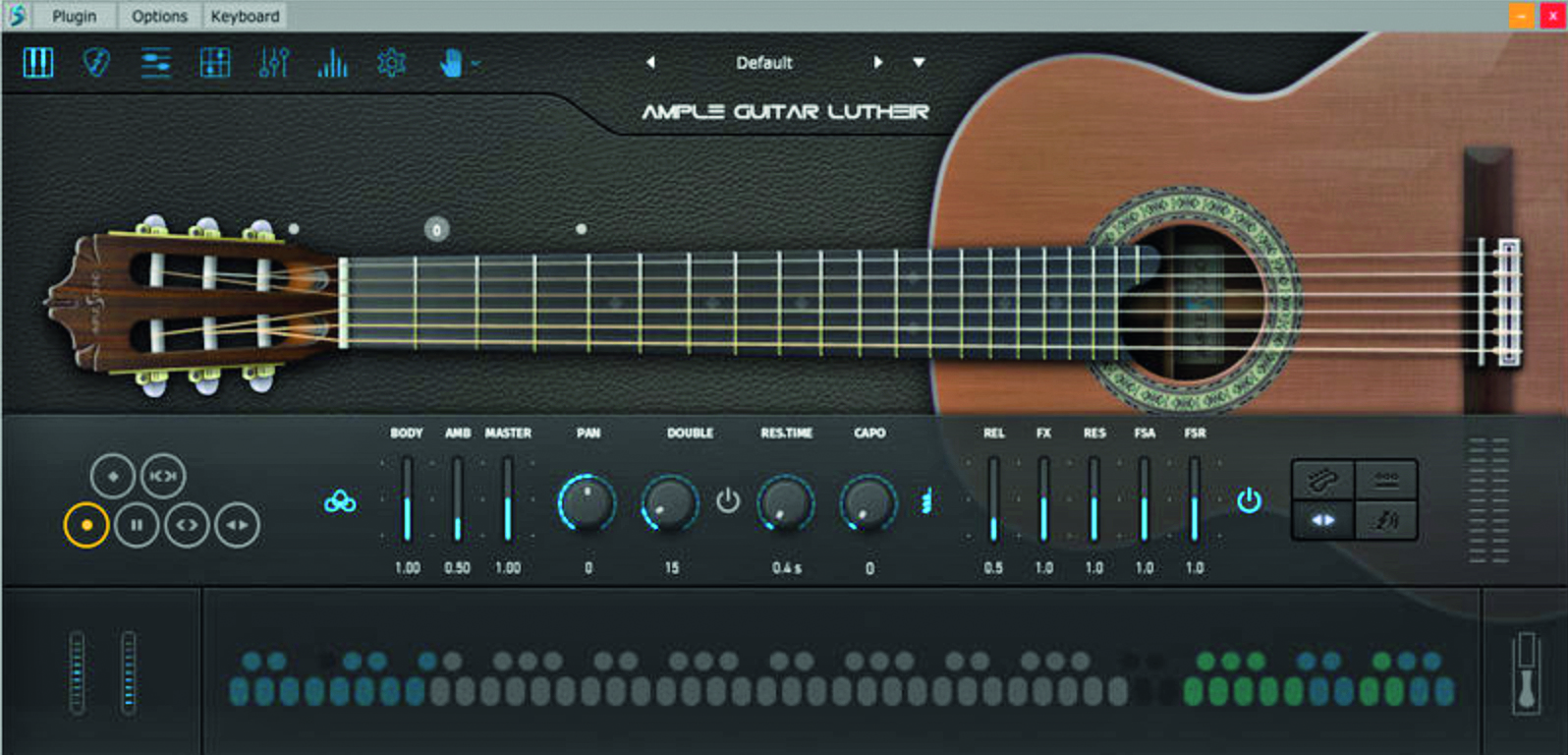
Featuring 3,682 samples, the realistic fretboard and string-handling noises found within Ample Guitar L III means that you’d be hard-pressed to tell the difference between it and a real guitar recording. A substantial helping of articulations, realistic legato and a choice of instrument types result in a quality simulated guitar option.
Vir2 Instruments Electr6ity | £290
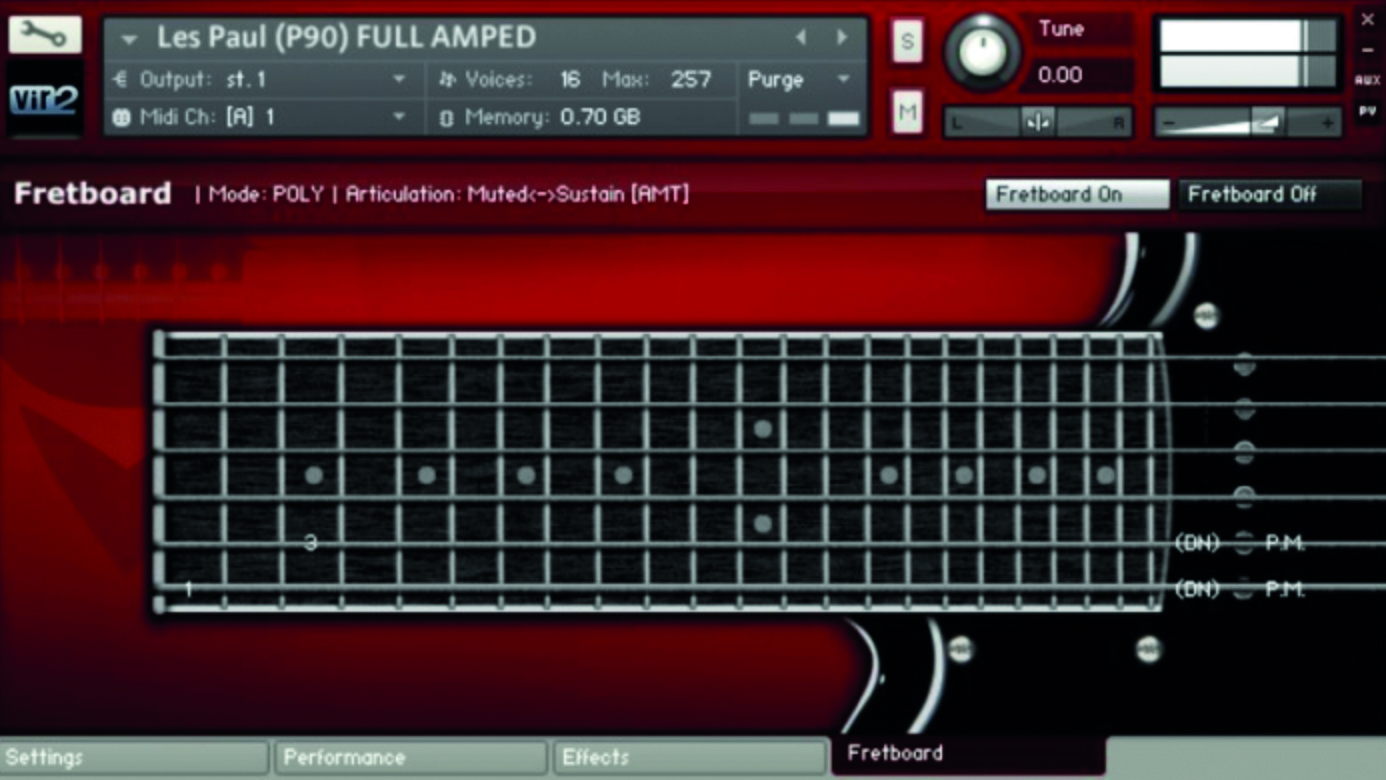
It may be over ten years old, but Electri6ity is still held in high regard by many software-guitar explorers. Its automatic chord feature revoices your MIDI keyboard chords into guitar chord shapes, while the programmable strumming ability keeps things sounding human. There’s also a huge amount of scalability and effects within.
Native Instruments Session Guitarist | £70
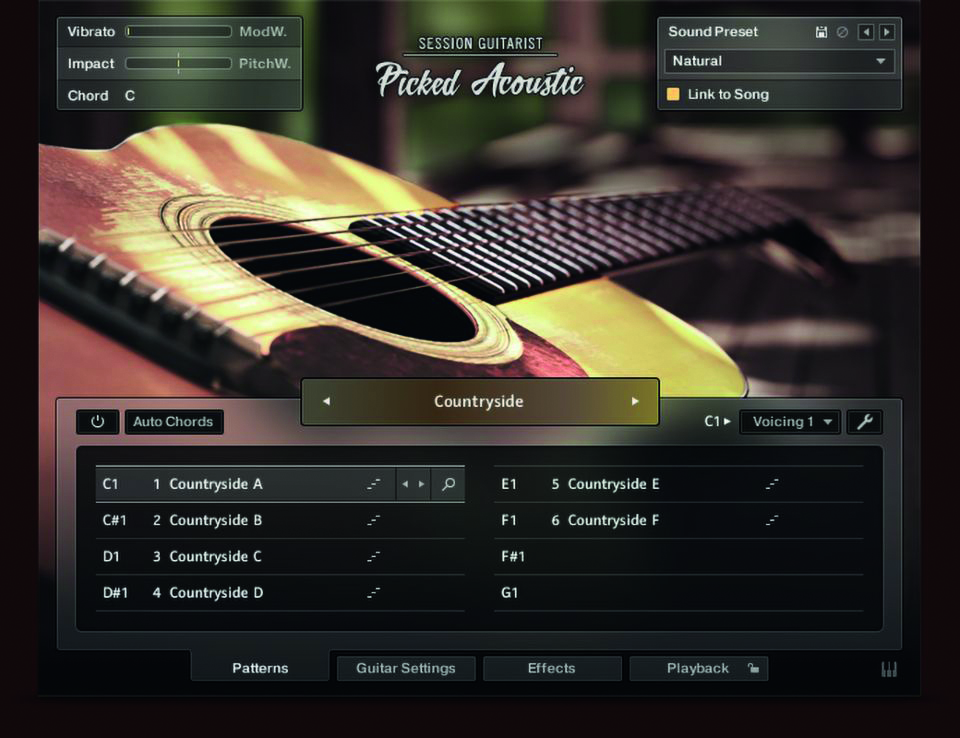
Across Native’s range of Session Guitarist instruments, stunning guitar recordings are performable via your standard MIDI keyboard. Strummed Acoustic is certainly up there as a vital go-to if you don’t have a real guitar to hand. It provides the simple ability to construct realistic performances that can help to texture your mix.
Orange Tree Samples Evolution Rock Standard | £130
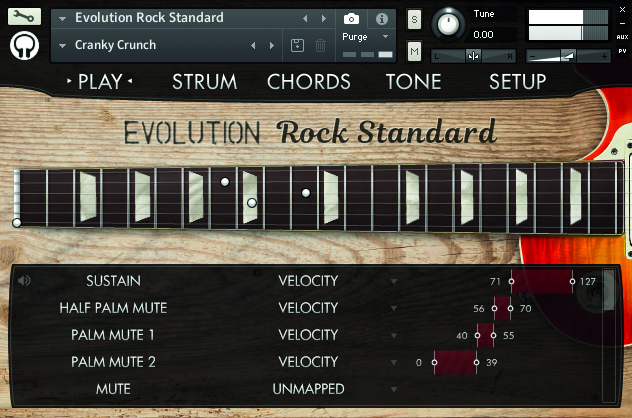
Taking their cues from a classic Gibson Les Paul sound, this sublime package captures the playing of acclaimed player Michael Dowdle, and features a heap of pre-recorded parts, phrases and programmable notes. The strumming animation controls are top notch as well, which features the ability to palm mute and apply harmonics.
UJAM Virtual Guitarist | £95

Available in a range of different flavours, the Virtual Guitarist series provides many musical styles to choose from, with thousands of samples and performance options to explore. Full chords can be triggered with single-note presses, and more than 100 presets can direct you to a tone that will work for your track. The effects are pretty sweet, too.


Computer Music magazine is the world’s best selling publication dedicated solely to making great music with your Mac or PC computer. Each issue it brings its lucky readers the best in cutting-edge tutorials, need-to-know, expert software reviews and even all the tools you actually need to make great music today, courtesy of our legendary CM Plugin Suite.
